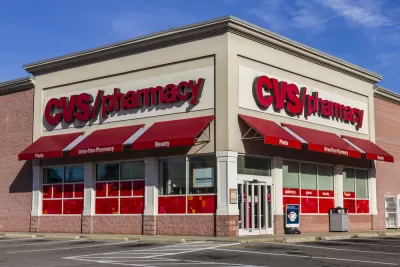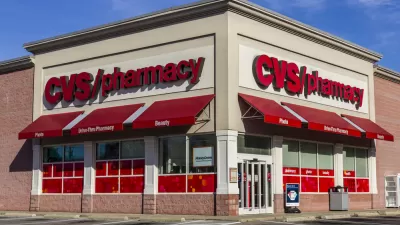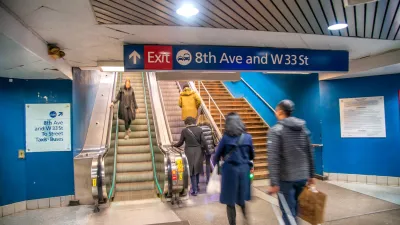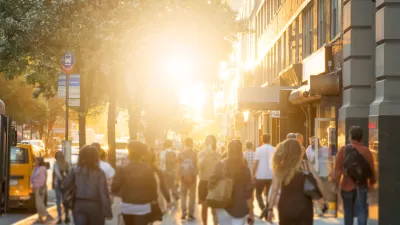Massive chain drug stores have become integral members of the urban fabric, for better or worse, but widespread store closures and security practices have come to symbolize urban decline. The dynamic must be monitored.

Shopping at big-name pharmacies like CVS, Rite Aid, and Walgreens involves so many products behind plexiglass, “It’s like shopping at a pharmacy 100 years ago, with a white-aproned clerk pushing around a ladder to grab your tinctures and tonics,” writes Henry Grabar for Slate.
The corporate behemoths are the frontline for one of the main talking points in the culture war that seems to focus on cities more than ever before in 2022.
The changes in how these businesses operate are a sign of large, era-defining forces at work, according to Grabar. “It’s a fundamental change for a business that transformed urban life with its breakneck expansion in the first decades of the 21st century. And it comes alongside an industrywide retrenchment, as that exuberant overbuilding spree comes face to face with remote work and e-commerce.”
The evidence of the retrenchment is perhaps less conspicuous that the plexiglass, but these drug stores, including flagship urban locations, are closing all over the country.
The article includes a sober discussion of the shoplifting issue (“You can be skeptical of companies playing the blame game, but retail experts are certain: If shoplifting weren’t chipping into profits, you wouldn’t see plastic cases at all.”) as well as a proposed solution for the challenges: a federal bill supported by the National Association of Chain Drug Stores that would require online marketplaces to verify the identify of third-part sellers.
According to both this article and a February article by Jack Denton for Curbed, however, shoplifting isn’t the cause of store closures. Fundamentals are, and that fact will have significant consequences for the future of cities and communities.
FULL STORY: The Rise and Fall of the Drugstore Chains

Planetizen Federal Action Tracker
A weekly monitor of how Trump’s orders and actions are impacting planners and planning in America.

Chicago’s Ghost Rails
Just beneath the surface of the modern city lie the remnants of its expansive early 20th-century streetcar system.

San Antonio and Austin are Fusing Into one Massive Megaregion
The region spanning the two central Texas cities is growing fast, posing challenges for local infrastructure and water supplies.

Since Zion's Shuttles Went Electric “The Smog is Gone”
Visitors to Zion National Park can enjoy the canyon via the nation’s first fully electric park shuttle system.

Trump Distributing DOT Safety Funds at 1/10 Rate of Biden
Funds for Safe Streets and other transportation safety and equity programs are being held up by administrative reviews and conflicts with the Trump administration’s priorities.

German Cities Subsidize Taxis for Women Amid Wave of Violence
Free or low-cost taxi rides can help women navigate cities more safely, but critics say the programs don't address the root causes of violence against women.
Urban Design for Planners 1: Software Tools
This six-course series explores essential urban design concepts using open source software and equips planners with the tools they need to participate fully in the urban design process.
Planning for Universal Design
Learn the tools for implementing Universal Design in planning regulations.
planning NEXT
Appalachian Highlands Housing Partners
Mpact (founded as Rail~Volution)
City of Camden Redevelopment Agency
City of Astoria
City of Portland
City of Laramie





























